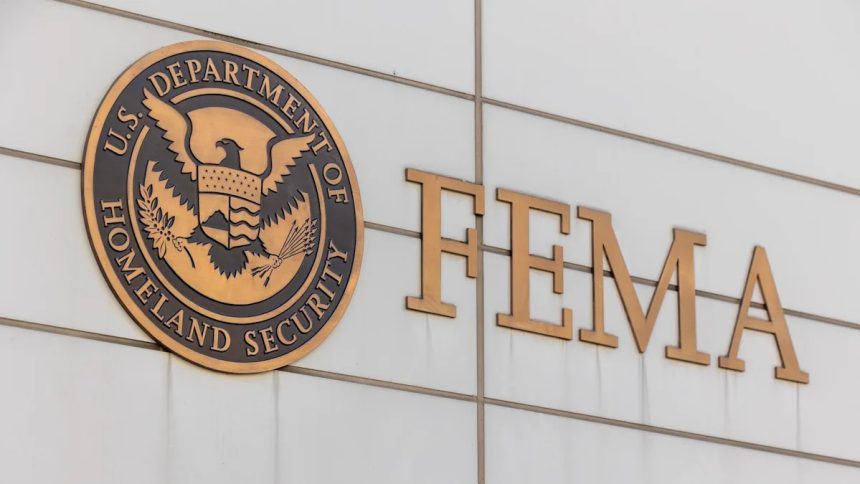A federal judge ruled Wednesday it is unconstitutional for the Trump administration to require states to cooperate with immigration enforcement in order to get some Federal Emergency Management Agency grants — a legal setback in the administration’s push to revoke funding to “sanctuary” cities and states.
U.S. District Judge William Smith of Rhode Island ruled in favor of 20 mostly Democratic states that had sued FEMA, accusing the administration of “holding critical emergency preparedness and response funding hostage” unless they assist immigration agents.
The decision is likely to be appealed.
The states that sued — which include California, New York and Illinois — took issue with a Department of Homeland Security document issued earlier this year that says recipients of DHS grants must “honor requests for cooperation” with immigration authorities, including requests to detain migrants or share information. Some of the plaintiffs are “sanctuary” states that have laws restricting cooperation between police and immigration agents.
The states argued this move violates federal law and the Constitution, and could deprive them of billions per year in key disaster grants from FEMA, which is a sub-agency of DHS.
The Trump administration has argued its policy doesn’t violate the law. Also, months after the lawsuit was filed, the government told the court it had decided most of the FEMA disaster grants that the states were concerned about losing will not be tied to immigration cooperation after all. The administration called the lawsuit moot on those grounds.
The states called the Trump administration’s decision not to link disaster grants to immigration enforcement “halfhearted and incomplete,” arguing it’s unclear if the decision was communicated to agency staff or if it will apply to years beyond 2025.
In a 45-page ruling Wednesday, Smith sided with the states and granted summary judgment, calling the policy “both arbitrary and capricious and unconstitutional.”
“Plaintiff States stand to suffer irreparable harm; the effect of the loss of emergency and disaster funds cannot be recovered later, and the downstream effect on disaster response and public safety are real and not compensable,” Smith wrote.
The ruling follows a monthslong gambit by President Trump to punish “sanctuary” cities and states that limit cooperation between the police and Immigration and Customs Enforcement.
The Trump administration argues those jurisdictions make it harder for ICE to apprehend undocumented immigrants, including accused criminals and people who are in state or local custody. But “sanctuary” cities and states typically argue that requiring them to cooperate with ICE would undermine trust in local police and make some immigrants wary of reporting crimes.
CBS News has reached out to DHS, FEMA and the White House for comment.
Within hours of returning to office in January, Mr. Trump signed an executive order telling federal agencies to ensure that “sanctuary” jurisdictions “do not receive access to Federal funds.” Since then, several agencies have moved to restrict grants to “sanctuary” cities and states, including the Department of Justice and the Department of Housing and Urban Development.
Those moves have drawn lawsuits from Democratic cities and states. Last month, a San Francisco-based judge blocked the Trump administration from cutting off funding to almost three dozen cities and counties, including Los Angeles, Chicago, San Francisco and Boston.
Trump slams Jimmy Kimmel’s return to late-night TV on ABC
Trump blasts U.N. during General Assembly address
Apple TV+ postpones Jessica Chastain show about investigating online hate groups









